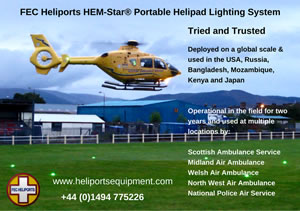QinetiQ2007-06-01 13:55:56
QinetiQ's polarisation technology results in £800k contract for further research into tripwire detection
QinetiQ has won an 18 month contract worth over £800,000 from the Mobility IPT, under the FATS framework, to undertake further research into polarisation technology, particularly for man-portable devices, to assist land forces in the dismounted detection of trip and command wires to explosive devices.
Trip and command wires are frequently found on conventional munitions, mines and many improvised explosive devices (IEDs) but are typically only a millimetre or less in diameter, so are extremely difficult to detect. This programme aims to develop a fieldable non miniaturised electro optic sensor, demonstrating its robustness and effectiveness against a number of prioritised operational scenarios, background and clutter environments, tripwire samples and weather conditions.
"This research project is an important step in trying to automate the detection of tripwires,� said Simon Gadd, the Mobility Integrated Project Team Leader. He added: "The project aims to identify the optimum means of optical detection and ultimately to help develop a reliable, portable system which can rapidly detect tripwires when operating in a minefield or mined areas.�
Previous MOD funded research carried out by QinetiQ had shown that the use of polarisation information in imaging systems could dramatically improve target detection, particularly in cluttered environments plus overcome several forms of camouflage, concealment and deception. Significant improvements in signal-to-clutter ratios have been demonstrated against anti-tank and anti-personnel mines in the visible and infrared wavebands.
For this programme, QinetiQ has partnered with Qioptiq, a recognised independent manufacturer of military electro optic sensors, to conduct activities aimed at de risking any consequent equipment programme that could lead to the mass production of a miniaturised sensor.
"Reliable non contact tripwire detection is needed to ensure acceptable tempo of land operations,� added Jon Salkeld, MD of QinetiQ's optronics division. "An effective electro-optic sensor would provide a valuable tool to assist with minefield clearance. QinetiQ's strong polarimetric imaging team bring many years of experience of developing prototype sensors to deliver innovative imaging solutions. We look forward to working with Mobility IPT on this challenging programme.�
QinetiQ's leading team has many years expertise in configuring, operating and understanding of polarimetric sensors and this has led to the development of a number of sensors to measure polarimetric signatures from the UV to the far infrared wavebands.
QinetiQ has won an 18 month contract worth over £800,000 from the Mobility IPT, under the FATS framework, to undertake further research into polarisation technology, particularly for man-portable devices, to assist land forces in the dismounted detection of trip and command wires to explosive devices.
Trip and command wires are frequently found on conventional munitions, mines and many improvised explosive devices (IEDs) but are typically only a millimetre or less in diameter, so are extremely difficult to detect. This programme aims to develop a fieldable non miniaturised electro optic sensor, demonstrating its robustness and effectiveness against a number of prioritised operational scenarios, background and clutter environments, tripwire samples and weather conditions.
"This research project is an important step in trying to automate the detection of tripwires,� said Simon Gadd, the Mobility Integrated Project Team Leader. He added: "The project aims to identify the optimum means of optical detection and ultimately to help develop a reliable, portable system which can rapidly detect tripwires when operating in a minefield or mined areas.�
Previous MOD funded research carried out by QinetiQ had shown that the use of polarisation information in imaging systems could dramatically improve target detection, particularly in cluttered environments plus overcome several forms of camouflage, concealment and deception. Significant improvements in signal-to-clutter ratios have been demonstrated against anti-tank and anti-personnel mines in the visible and infrared wavebands.
For this programme, QinetiQ has partnered with Qioptiq, a recognised independent manufacturer of military electro optic sensors, to conduct activities aimed at de risking any consequent equipment programme that could lead to the mass production of a miniaturised sensor.
"Reliable non contact tripwire detection is needed to ensure acceptable tempo of land operations,� added Jon Salkeld, MD of QinetiQ's optronics division. "An effective electro-optic sensor would provide a valuable tool to assist with minefield clearance. QinetiQ's strong polarimetric imaging team bring many years of experience of developing prototype sensors to deliver innovative imaging solutions. We look forward to working with Mobility IPT on this challenging programme.�
QinetiQ's leading team has many years expertise in configuring, operating and understanding of polarimetric sensors and this has led to the development of a number of sensors to measure polarimetric signatures from the UV to the far infrared wavebands.
For more information contact:
Cody Technology Park
Room G069, Building A 7
Cody Technology Park, Ively Road
FARNBOROUGH
Hampshire
GU14 0LX
United Kingdom
Tel: +44(0)8700 100 942
